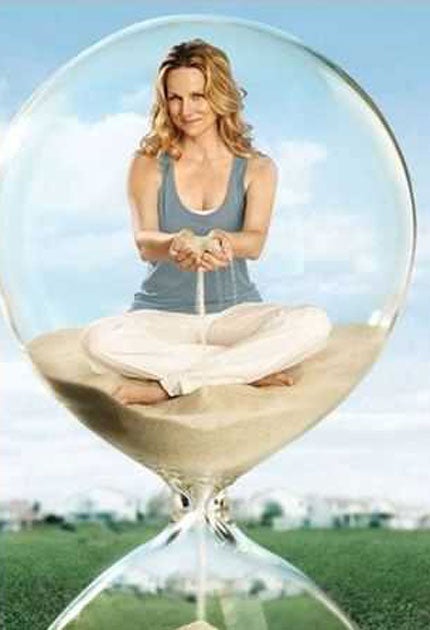It's Showtime for compelling female roles
A US cable channel is challenging the male-dominated world of TV drama – and not before time, says Sarah Hughes

Your support helps us to tell the story
From reproductive rights to climate change to Big Tech, The Independent is on the ground when the story is developing. Whether it's investigating the financials of Elon Musk's pro-Trump PAC or producing our latest documentary, 'The A Word', which shines a light on the American women fighting for reproductive rights, we know how important it is to parse out the facts from the messaging.
At such a critical moment in US history, we need reporters on the ground. Your donation allows us to keep sending journalists to speak to both sides of the story.
The Independent is trusted by Americans across the entire political spectrum. And unlike many other quality news outlets, we choose not to lock Americans out of our reporting and analysis with paywalls. We believe quality journalism should be available to everyone, paid for by those who can afford it.
Your support makes all the difference.If there is one rule for actresses over 40 these days it's that they should forget about movies and head to television as fast as they can. For while their film counterparts see their opportunities gradually reduced to mother or wife of hero, bitter ex-wife or mother-in-law of hero or saintly dead wife or mother glimpsed during hero's flashback, on television that stereotyping is holding less true. As Julianna Margulies, the star of new hit The Good Wife recently said: "I'll always do television. It's where the best, richest roles for women are, period."
And nowhere are those roles richer than at US cable channel Showtime. While US network television does have some good roles for older women – Connie Britton's warm-hearted Mrs Coach in Friday Night Lights, Kyra Sedgwick's flaky cop in The Closer – Showtime is some way in front, having not simply created strong female characters but, more crucially, allowed actresses to take on the sort of flawed, amoral roles traditionally embraced by men.
In Nurse Jackie, Edie Falco's titular character is no nursing angel but rather a drug addict and a cheat. Then there's the much-nominated Emmy and Golden Globe-winning Weeds in which Mary-Louise Parker plays a widowed housewife whose answer to her money woes just happens to be becoming the neighbourhood pot dealer. Similarly, in The United States of Tara, Toni Collette plays a suburban mother of two who suffers from a multiple personality disorder during times of stress. The role has won Collette an Emmy and a Golden Globe; accepting the latter, she thanked Showtime's executives "for having the balls to work on all of these amazing, confronting shows".
Showtime's latest drama, The Big C, which starts this summer, stars Laura Linney as a teacher diagnosed with terminal cancer and Precious's Gabourey Sidibe as one of her pupils – and is not afraid to mine dark material for humour. Debunking the Hollywood myth of the saintly cancer sufferer, Linney's mild-mannered Cathy discovers that her diagnosis releases her inner "bitch", allowing her to take control of her life in surprising ways.
All four of Showtime's dramas are written by women: Nurse Jackie by Liz Brixius and Linda Wallem, Weeds by Jenji Kohan, The United States of Tara by Oscar-winning Juno screenwriter Diablo Cody and The Big C by Darlene Hunt. That they have ended up working on the same channel is no surprise given the current risk-averse climate in US television. As Wallem recently told Jezebel.com, "All the TV executives in LA were going 'women are not interesting' ... we'd go into pitch meetings and it was like the '60s. All of a sudden it was, the only female part in this pilot is going to be the wife, and oh, she's long-suffering... "
Showtime took a decision to fly in the face of that conventional wisdom thanks to head of programming, Robert Greenblatt, who took over in 2003 with the aim of reinventing a channel then best known for the soft-porn series The Red Shoe Diaries. "I want to focus on getting people to do things that they couldn't do anywhere else," Greenblatt told The New York Times.
That decision has stood Showtime in good stead. Other channels might have turned increasingly to more masculine fare – FX recently pulled the plug on Damages, leaving their line-up testosterone-heavy, while HBO are concentrating largely on big-hitting, male-dominated shows from David Simon, Martin Scorsese and David Milch – but Showtime have held firm to the idea that a well-written show with a female lead can do as well as one where the lead is male. The numbers back them up. In 2009 they had 22 million subscribers and won more awards than any other network. With a number of female-led projects, including a TV series of indie film Sunshine Cleaning and a Broadway-set drama by Theresa Rebeck in development, they're not going to stop doing things differently any time soon.
For further reading go to: Sho.com
Join our commenting forum
Join thought-provoking conversations, follow other Independent readers and see their replies
Comments